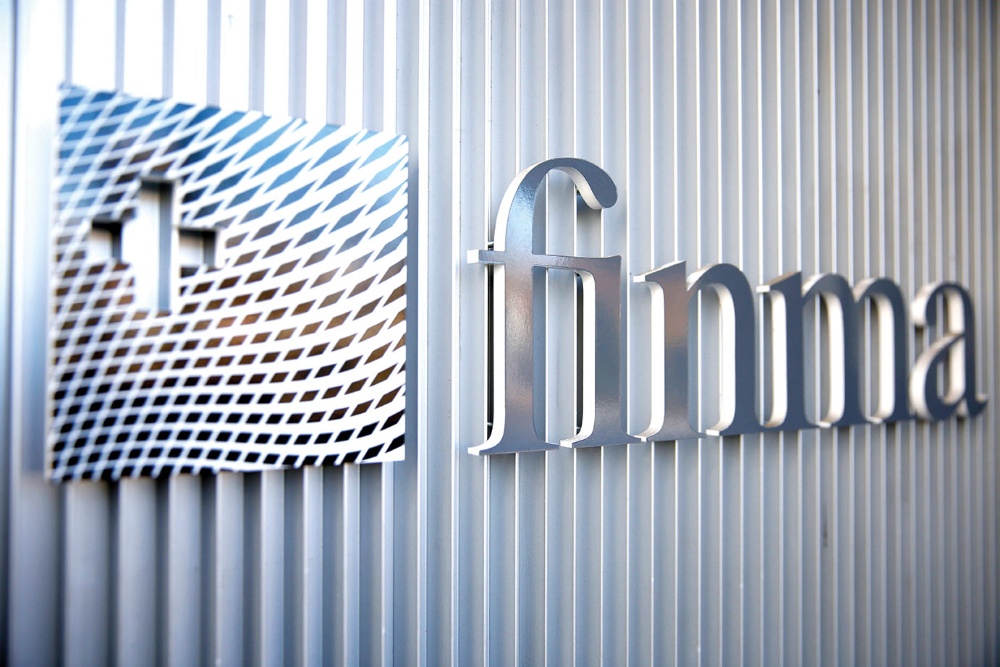Interview FINMA: regulating progress
Everyone from Silicon Valley giants to innovative start-ups is desperate for a chance to shake up the financial sector. But this industry is highly regulated, and without a receptive regulator, many efforts are doomed from the start.
 The Swiss Financial Market Supervisory Authority (FINMA) welcomes innovation from new and established companies in the financial sector.
The Swiss Financial Market Supervisory Authority (FINMA) welcomes innovation from new and established companies in the financial sector.
The IT industry has previously been able to evolve pretty much free of regulatory hurdles, although the digitalization of the financial sector has forced a rethink. Following the 2008 crash, there are now more regulations to contend with than ever before. Nevertheless, fintech has become something of a buzzword, although Switzerland has been a bit behind the trend until now. Among other targets, industry advocates are pointing the finger at the Swiss regulator, FINMA. They squint enviously at goings on in London, New York, or Singapore, observing the greater flexibility developers in these places seem to be able to enjoy. swiss made software spoke to FINMA about the regulator’s role in the growing fintech sector.
- Christian Walter: The Swiss fintech industry has repeatedly accused FINMA of being too slow to respond to queries, especially compared to the United Kingdom. How do you feel about this criticism?
-
Finma: FINMA was pretty quick to clearly define how to manage crowdfunding and Bitcoins. Corresponding information was published in the annual reports and specific fact sheets in 2012 and 2013. The questions asked by fintech companies are very different. They relate to unusual, complex, and at times new legal issues. FINMA is of course very aware of the situation applicants find themselves in when applying for licenses. New processes have now been implemented to make the application process more efficient and as speedy as possible. However, those who are more accustomed to quick click-and-go processes are still unlikely to be happy with the results. It will take time to fully resolve these issues.
- In spite of everything, the legal framework that surrounds fintech often feels quite insecure. It can sometimes take up to eight months to receive a response to questions. The UK has introduced a fasttrack system to provide responses within 24 hours. Is FINMA looking at similar ideas?
-
You can’t compare apples with oranges. FINMA will send a quick response to simple queries, too. The difference lies in the complex license applications, which can take more than eight months. In these cases, a fasttrack procedure with a 24-hour turnaround just wouldn’t be realistic.
- How does FINMA define fintech?
-
Fintech is a very broad term which describes numerous technological innovations in the financial sector.
- And where is fintech on the FINMA agenda?
-
FINMA welcomes innovation from new and established companies in the financial sector, but maintains a neutral position on individual business models or technology. Still, it considers innovation in general to be an important factor in maintaining Switzerland’s competitiveness as a financial center. This is why FINMA is paying close attention to developments here, at both a strategic and technical level.
- Innovation needs space to grow and thrive. What does FINMA plan to do to give new ideas space for experimen-tation?
-
As part of its efforts to reduce barriers, FINMA is particularly considering whether and how the scope of activities for which no license is required could be more clearly defined, and perhaps slightly extended. It may be possible to create a form of development environment, in which new business models could be tested on a small scale with manageable risks – a ‘regulatory sandbox’ of sorts. However, such a thing would also be affected by any possible future changes to Swiss banking legislation.
- A ‘light’ banking license has also been proposed. What will this cover?
-
FINMA has suggested a ‘light’ banking license, which would have lower requirements than those currently stipulated under the Swiss Banking Act. This new category of license would be open to anyone who is interested – so more than just fintechs. That said, an easier licensing process must be subject to two conditions. First, the institute must be working with smaller volumes. Second, the institute must not be permitted to perform any maturity transformations. This means that longterm loans cannot be granted on the basis of short-term deposits. This restriction eliminates both the liquidity risk and interest rate risk. The customers’ financial risks and their protection requirements are therefore much lower than they would be with a traditional bank. Any necessary changes to the law or regulations must of course be made by the legislator and Swiss Federal Council respectively.
- Have the volumes already been defined?
-
No, not yet.
- From the perspective of the public, a lot of things have happened over the past year – particularly in regards to online ID and the ‘light’ banking license. Are these signs of a new discourse?
-
It is true that a number of issues gained much visibility over the past year. FINMA’s efforts are focused on removing the barriers to fintech companies, ensuring regulations are technology-neutral, and maintaining contact with market participants.
- What would be the best way for the various industry stakeholders to enter into dialogue with FINMA?
-
FINMA has a central contact point that handles all queries. FINMA also has created platforms in some areas to support this dialogue, and takes part in some external events. For example, FINMA will be holding a roundtable event on fintech-specific issues for all interested parties in 2016.
- Is there a difference between your old, familiar clientele, as in the generally large, international companies, and today’s start-ups?
-
FINMA has been in contact with both established market participants and potential new fintech competitors for many years. Their needs, as well as their experience with matters relating to supervisory law, are of course different. Some business models or activities naturally mean there are more questions relating to possible violations of the Swiss Money Laundering Act, and in other cases it is more about their activities as a bank. It is always es-sential for FINMA to precisely understand the business model or the technology used so that it can make a proper assessment.
- FINMA was early to recognize Bitcoin as a foreign currency. This is one reason that motivated many such start-ups to move to Switzerland. Has this success inspired further reflection?
-
FINMA considers innovation in general to be an important factor in maintaining Switzerland’s competitiveness as a financial center. FINMA was also quickto develop its practices on how to deal with business models that are based on Bitcoins.
- Blockchain is on everyone’s lips. What is your current position?
-
FINMA is following this matter closely and is in communication with the industry regarding the regulatory requirements.
- On crowdfunding: Currently, amounts invested here are treated like deposits in a bank. This makes it hard for such platforms to operate. Will things stay this way?
-
The ‘light’ banking license is intended to make things easier in scenarios exactly like this. However, it is the legislature and the Swiss Federal Council who have the final say.
- How are things set to continue in 2016?
-
The agenda is set by the Swiss Federal Council. We have no influence on this, and so we do not have any relevant information, either. Thank you for these informative responses. We really appreciate you taking the time to share your insights.
